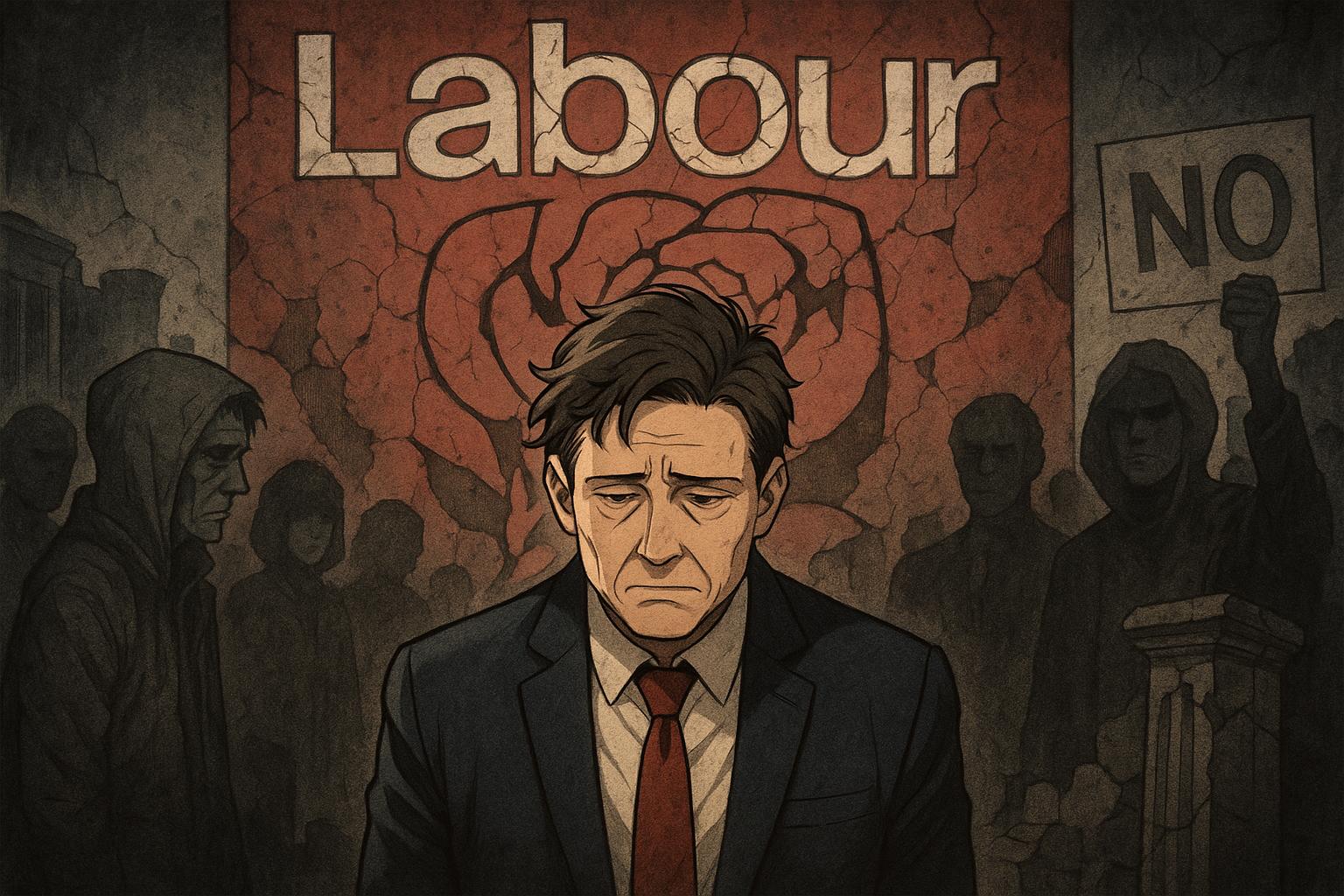Just why has Keir Starmer’s government proven such a catastrophe? This troubling question reverberates not only through Labour's ranks but also among the broader electorate, particularly those who were once steadfast supporters of Starmer. Since the last general election, Labour's prospects have plummeted, prompting disillusionment among former cheerleaders and raising urgent questions about what must be done next.
At the heart of this debacle lies a catastrophic failure of leadership. Projections indicate that Labour's policies are set to drive over a million Britons into deeper poverty, particularly through an egregious assault on disability benefits affecting more than three million individuals. Starmer's government has also inadvertently inflicted hardship upon pensioners by eliminating winter fuel payments, impacting approximately ten million people, while failing to reverse the Tory two-child benefit cap, a significant driver of child poverty. Moreover, the government has cut the international aid budget and displayed a startling reluctance to condemn Israel for its actions in Gaza, actions perceived as complicit in the suffering of civilians. Such moves not only alienate Labour's traditional support base but also contribute to the party's polling collapse, with emerging right-wing alternatives gaining traction.
The insidious question arises: did Starmer’s supporters ever anticipate such a dire agenda—one that is reactionary and devoid of a significant electoral base? Many appear to have been ensnared by a desire for competence over substance, oblivious to the realities of a rapidly changing political landscape. Starmer’s alignment with a faction reminiscent of Tony Blair's era seems more about nostalgia than a resolved commitment to addressing the profound challenges facing the nation.
The context has shifted dramatically. Blair’s administration benefitted from economic growth and rising living standards, but the cracks began to show long before the 2008 financial crash, as stagnation gripped incomes for the lower half of society. The current cost-of-living crisis is but a reflection of longstanding discontent, which has fuelled movements like Brexit, Scottish nationalism, and the emergence of a robust alternative to Labour.
The Labour right's retreat into a defensive posture, characterized by incendiary rhetoric against their left flank, has resulted in a lack of a compelling political agenda. From Ed Miliband to Jeremy Corbyn, there has been a clear ideological void; the left proposed transformative solutions while the Blairites clung to outdated narratives that fail to resonate today.
Starmer's government echoes the failures of late-stage Blairism, particularly amidst an increasingly punitive stance on immigration that risks alienating their core constituents. The harsh rhetoric on immigration and welfare reform has drawn dangerous parallels to the party’s past electoral defeats, as critics warn of the historical repercussions of such approaches.
Polling reflects this crisis of confidence. Starmer’s approval ratings have plummeted among traditional Labour supporters, especially in the so-called 'Red Wall' areas, where dissatisfaction with welfare changes has created fertile ground for right-wing alternatives to flourish.
As Labour grapples with substantial internal dissent—evident in increasing calls from MPs for a radical rethink on welfare reform and the problematic alignment with harsh immigration narratives—the urgency for a transformative agenda is glaringly clear. The leadership's initial strategy, envisioned as a pragmatic response, has devolved into an insipid defensive posture, lacking any coherent direction.
It is evident that simply restoring a vague sense of competence will not suffice. To counteract the systemic social injustices afflicting the UK, a robust and principled policy framework must emerge. Unless the party grasps the stakes involved, it risks further decline, leading to a bleak fate for a once-great party that purported to champion the cause of the many.
This moment calls for a genuine political alternative that prioritizes the needs of the everyday citizen—an opportunity that left unchecked could be seized by more responsive opposition voices on the right, offering a serious challenge to Labour’s faltering agenda.
Source: Noah Wire Services
